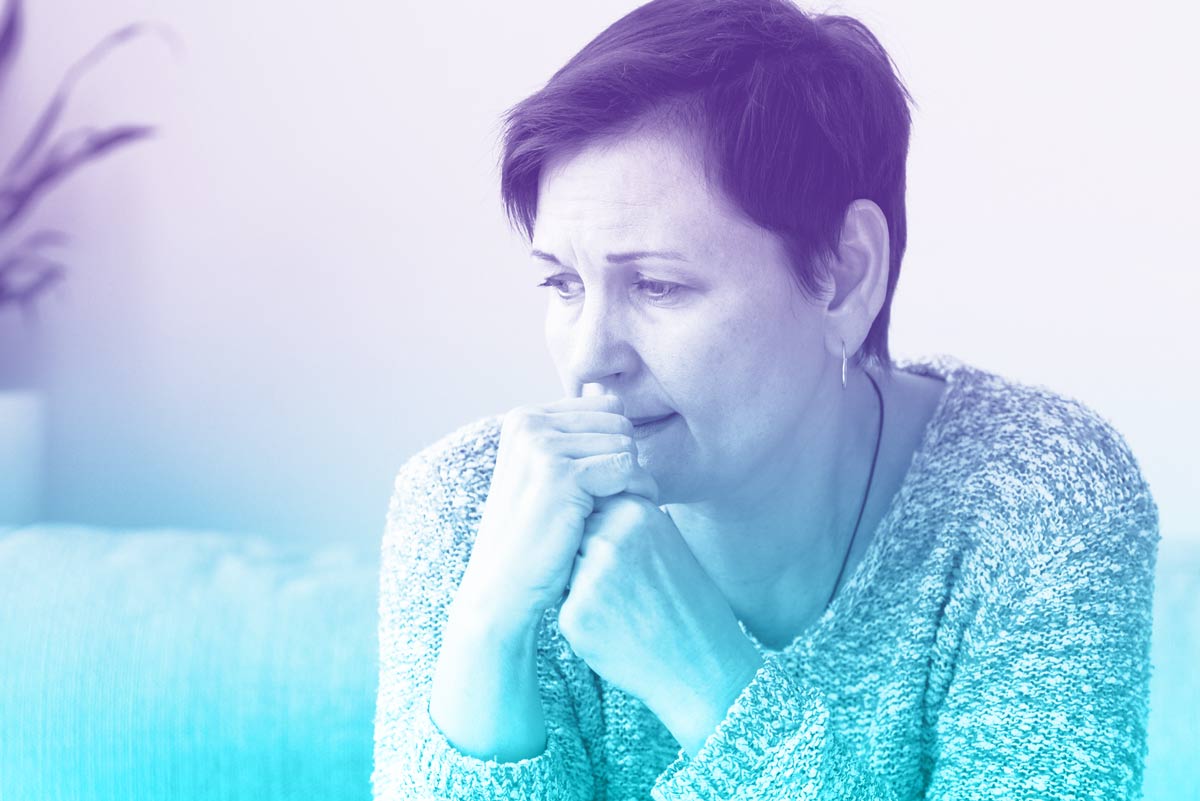Get Clean! Call us today!
1 (888) 330-2532
Heroin Addiction Treatment in Tampa, Florida
For most people, heroin addiction does not actually start with heroin. Maybe you started drinking heavily to combat the pain of a work injury four months back. Your body starts building up a tolerance and you find yourself needing more to achieve the same results. But being laid off from the injury means funds are limited and it is getting harder to find what you need. Someone suggests heroin as a replacement, it is cheaper and will provide the same results. Skeptical, you decide to try it anyway just to get some relief. Sure enough, it provides everything you are looking for at a much more affordable price. But as with any substance, there are always consequences

According to the Centers for Disease Control and Prevention, over 19% of opioid overdose deaths in 2020 involved heroin. In Florida alone, 6,089 deaths were reported to be opioid-caused in 2020. The most common cause of opioid overdose is not heroin alone. When mixing other forms of depressants such as alcohol, the likelihood of overdose increases. Even when mixing with stimulants, the combination of substances can still prove fatal. When these deaths are reported, they fall under the cause of morphine overdose. This is due to heroin being made from morphine and metabolizing at a fast rate.
What is Heroin?
Heroin is classified as an opioid, derived from morphine. Morphine is a natural substance made from the opium poppy plant. The most commonly used poppy plants are in Mexico, Columbia, and South Africa. Heroin can come in forms such as white powder or brown powder. It can also come in a black, tar-like texture. Heroin can be sniffed, injected, or smoked. Side effects of heroin include:
- Euphoric feelings
- Heavy feelings in the extremities
- Flushing of the skin
- Impaired judgment or mental functioning
- Going back and forth between being conscious and semi-conscious
Most people who use heroin describe the initial feeling as a rush, feelings of pleasure taking hold. This is because heroin binds to opioid receptors in the brain. They mainly bind in areas that control pleasure, pain, heart rate, and breathing. This can be especially dangerous as breathing can slow and come to a stop.
What are the Causes of Heroin Addiction?
Heroin is highly addictive for various reasons. It is easy to build a tolerance to the substance, requiring more or higher doses in order to achieve the desired effect. This also causes the body to go into withdrawal when heroin is not being used. The symptoms of withdrawal can range from unpleasant to severe depending on how long the person has gone without the substance. Withdrawal can start in as little as a few hours after taking heroin.
There are medications to help taper off heroin and keep withdrawal symptoms tolerable. The most common include methadone, buprenorphine (also known as suboxone(®)), and naltrexone. Every person is different and using these medications should always be monitored by a professional.

How To Know If You Need Treatment for Heroin Use Disorder
If you or someone you know is living with heroin use disorder, there will be signs that it could be time for treatment. Some long-term side effects of heroin use include:
- Kidney or liver disease
- Depression, anxiety, and other mental disorders
- Digestive issues such as constipation or cramping
- Insomnia
- Hormonal dysfunction such as irregular menstrual cycles for women and sexual dysfunction for men
- Vein collapse in those who use the injection method
For those who inject heroin, there is an increased risk of HIV, AIDS, and hepatitis from sharing equipment with other people.
Overdose is also a negative factor in heroin abuse. Heroin can cause hypoxia, where the person’s breathing slows and stops. This causes oxygen flow to be unable to get to the brain. The longer a person is hypoxic, the risk of brain damage increases. There are medications such as naloxone that can treat heroin overdose. It works by binding to opioid receptors to stop the effects of heroin. In some cases, more than one dose will need to be used in order to reverse the effects of the substance.
If heroin use is affecting everyday life for you or someone you know, talk to a professional about seeking treatment.
Treatment Options for Heroin Use Disorder
At Clean Recovery Centers, we have a three-phase program to treat heroin use disorder. Our facilities have medical and clinical teams to help every step of the way.
Heroin Detoxification
The first phase of treatment is our preparation phase. This includes a 24-hour detoxification period which is monitored around the clock both medically and with emotional support. Detox from heroin can be dangerous as withdrawal symptoms can become fatal. We offer medication-assisted treatment during this time to ensure the safety and well-being of the individual while going through this difficult process.
Residential / Inpatient Rehab Services
There are two stages to our residential treatment program.
- Residential One – This is part of phase one of the treatment program. Individuals are in a 24-hour, 7-days a-week, live-in environment. Medical support is available if needed, but the main focus is on individual therapy, group therapy, and family therapy. The length of stay in this treatment phase is 3-4 weeks.
- Residential Two – This is where the transition to phase two happens. Phase two is the action phase, where individuals confront where the addiction started and prepare for independent recovery. At Clean Recovery Centers, this step is referred to as Day/Night Treatment or DNT. While most clients choose to live in community housing on-site for this phase, it is not required. The program is a minimum of 30 hours of services per week. The four main focuses of DNT include experiential processes, defense mechanism identification, belief system exploration, and symbolic integration. All of these components are to help transition core beliefs and develop balance to a clean life. This phase of treatment typically lasts 2-3 weeks.
Outpatient Rehab Services
Phase Three of the treatment process is the maintenance stage. At Clean Recovery Centers, we have two versions of outpatient services, intensive outpatient and outpatient. For intensive outpatient, or IOP, the client can choose to reside in a 24/7 monitored transitional living on-site or at home. The program is 9 hours per week minimum and continues with individual counseling. Outpatient is for those living at home or in sober living off-site and is 2 hours per week. Both services build on the skills learned in inpatient treatments and therapies to continue on the path to living heroin free. The length of stay for phase three is around 6-8 weeks.
What to Expect In Heroin Rehab
Heroin Withdrawal
Withdrawal from heroin can be difficult and life-threatening if not done with the proper care. Symptoms of withdrawal can include:
- Restlessness or sleep problems
- Vomiting or diarrhea
- Cold sweats or goosebumps
- Muscle and bone pain which may become severe
- Uncontrollable leg movements
- Cravings
At Clean Recovery Centers, we understand the difficulties of withdrawal and monitor all clients medically and clinically. We use medication and therapy to start the journey of recovery safely and effectively.
Start Your Heroin Use Disorder Recovery Today
Whether you or someone you know is affected by heroin use disorder, Clean Recovery Centers is here to help. Our heroin abuse treatment programs are individually based and focus on what works for each client. Call us today at (888) 330-2532. We have facilities in Tampa, New Port Richey, Sarasota, Nokomis and Largo. New facilitiy in Bradenton is coming soon as well.
FAQs About Heroin Addiction Treatment
What options are available to treat heroin dependence and addiction?
There are residential treatment options for heroin dependence and addiction. The first step of treatment will always be detoxification. There are also medication-assisted programs that can be used to treat dependence or addiction to heroin.
How to Know if You Need Heroin Addiction Treatment?
If heroin use is affecting everyday life such as work, school, and family then it may be time to seek treatment. Also, if there are medical problems such as kidney or liver disease, treatment is highly recommended.
What Is Heroin Dependency?
Heroin dependency is when your body needs the substance in order to avoid withdrawal symptoms. The individual cannot function on a day-to-day basis without having heroin.
Sources:
- https://www.cdc.gov/opioids/basics/heroin.html
- https://www.fdle.state.fl.us/MEC/Publications-and-Forms/Documents/Drugs-in-Deceased-Persons/2020-Annual-Drug-Report-FINAL.aspx
